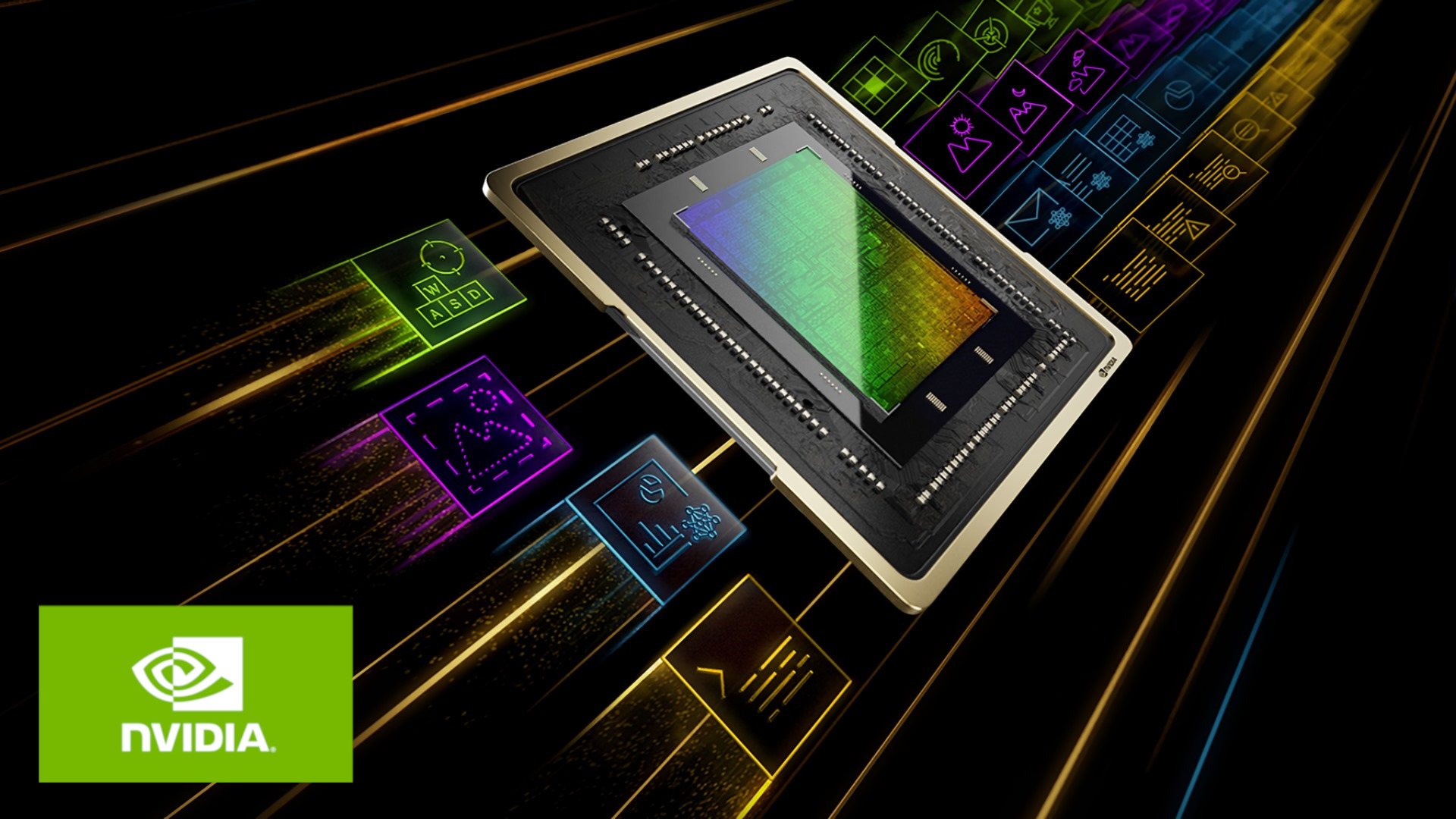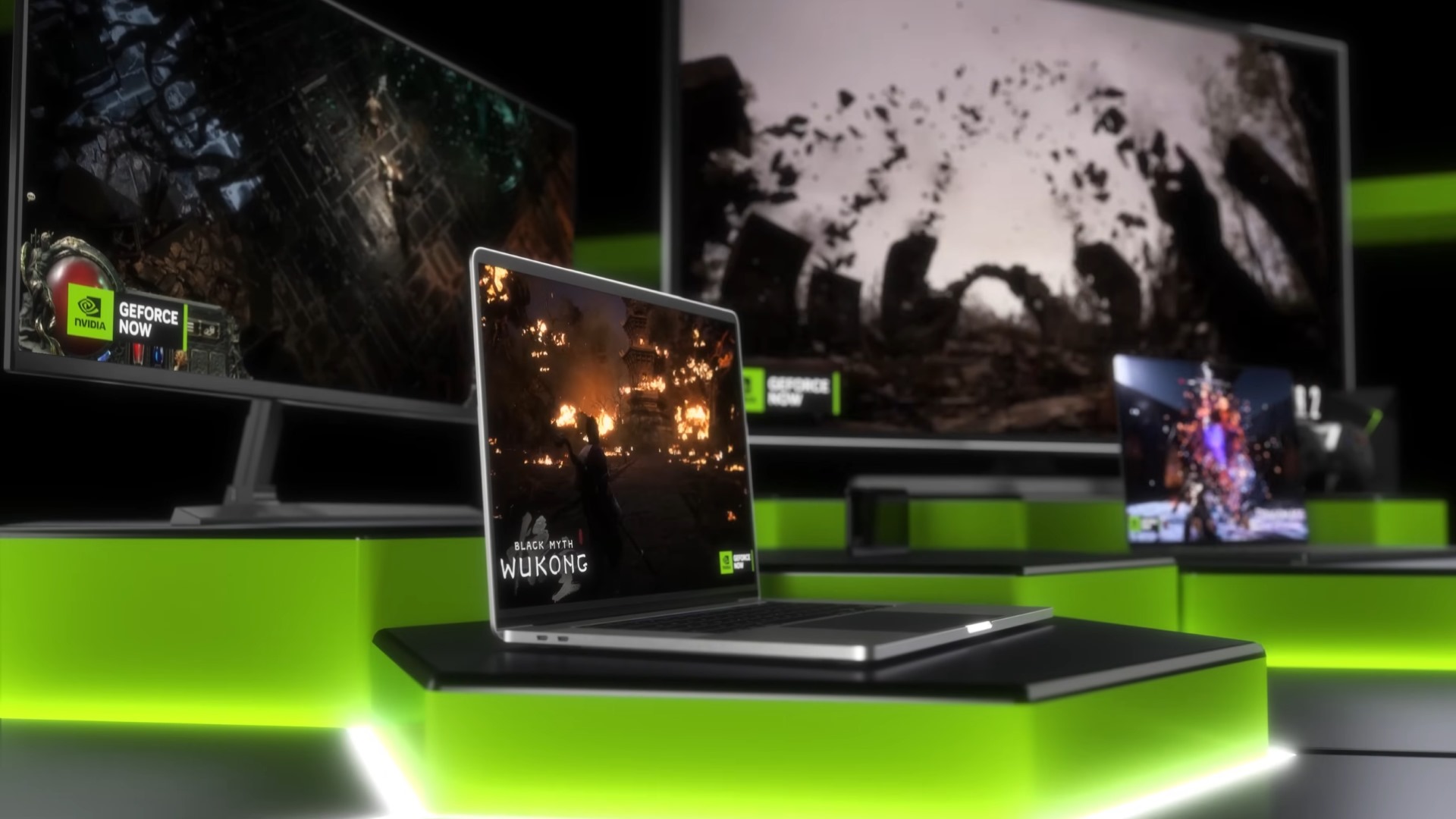What Makes NVIDIA A Leader In AI?
February 10, 2025

NVIDIA is a world leader in AI. That is not an opinion. That is a fact, and that fact is what has garnered so much attention from the stock market. For the people outside the know, though, NVIDIA's standing with AI might seem a bit confusing. Is NVIDIA relying mostly just on hype? What exactly even puts the company in such a powerful position? We're going to break that all down here.
NVIDIA Is The GPU King. GPUs Make AI Possible.
NVIDIA absolutely dominates when it comes to GPUs. Currently, NVIDIA possesses around 90% of the desktop GPU market share. AMD and Intel can be considered competitors, but that term is starting to get a bit generous. NVIDIA far outpaces the competition in GPU technology, solidifying its position as the de facto leader in AI.
Now, if you didn't know, GPUs have everything to do with the modern capabilities of AI. Matrix multiplication is very important for AI functions, and GPUs are the perfect processors for that. NVIDIA loves to talk about tensor cores, and that's because they're even more specialized for matrix multiplication. If you're deeply invested in AI, those cores are what you want to look out for.
What makes NVIDIA particularly ideal for anything related to AI is their proprietary programming interface, CUDA. Effectively, CUDA allows programmers to use GPUs for whatever specific need they have. They can maximize the hardware for their desired use. That is very nice when you want hardware solely for deep learning. And because NVIDIA is so popular, most high-level programmers only have expertise with CUDA. That naturally disincentivizes switching away from NVIDIA.

NVIDIA Literally And Metaphorically Pushes AI
As of right now in 2025, AI is a bit of a sham. The technology is real. There's no doubt about that. In fact, AI is already taking jobs. It's progressing us further at a faster pace. All that being said, how NVIDIA talks about AI is fairly misleading. This technology isn't for the average consumer. RTX 5090s don't exist just so that you can use Stable Diffusion at home. There isn't really much that your average person can do with hardware designed to push AI technology.
Related Read
Gaming-wise, however, there actually is a lot of potential with NVIDIA's most recent technology. Neural rendering and neural shaders could be a legitimate solution to vastly improve upon the poor optimization of modern-day textures. Using AI to ray-trace games and add geometrical complexity to any scene may just be how the industry takes graphics to the next level. Neural rendering doesn't just theoretically offer better visuals and immersion; it should also theoretically add better performance. Neural rendering is definitely something to look out for in the future.
Unsurprisingly, though, those who have the most to gain from AI are companies. All kinds of different processes can be improved upon or simplified without need of human intervention. From customer service to reading x-rays, AI can accomplish so much already in the present-day. How that is being innovated upon isn't clear to see, but more options are being opened up with better hardware.

NVIDIA is a leader in AI for various different reasons, but it mainly comes down to NVIDIA already being the golden standard. That's unlikely to change any time soon, unless NVIDIA's competition starts selling at unbelievably cheap prices. Even something like DeepSeek isn't a real threat to NVIDIA. Sure, DeepSeek may have proved that NVIDIA's cutting-edge hardware isn't needed for top-of-the-line models, but...what's the point in settling for less? Companies want innovation. NVIDIA will get them there. For now.
